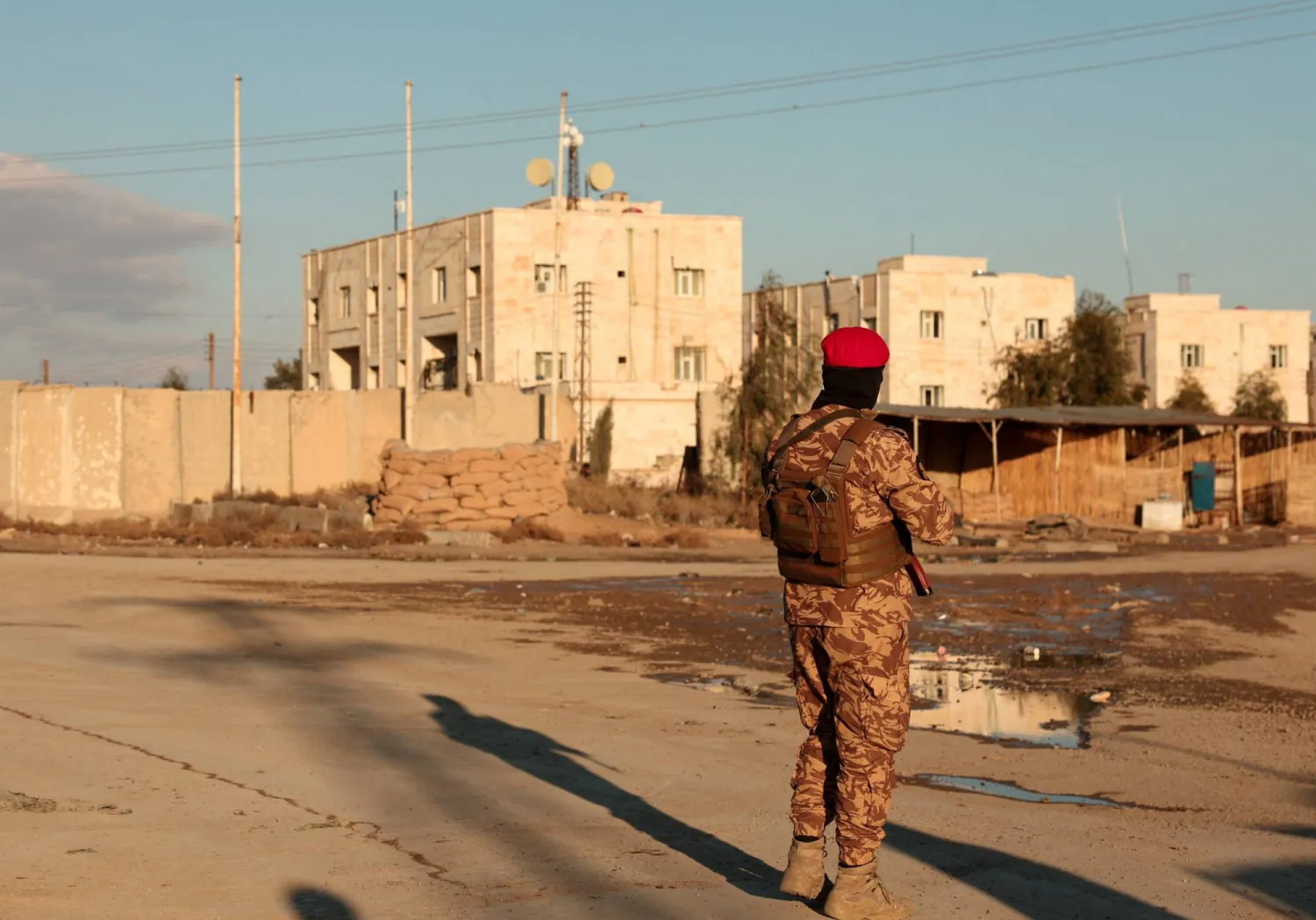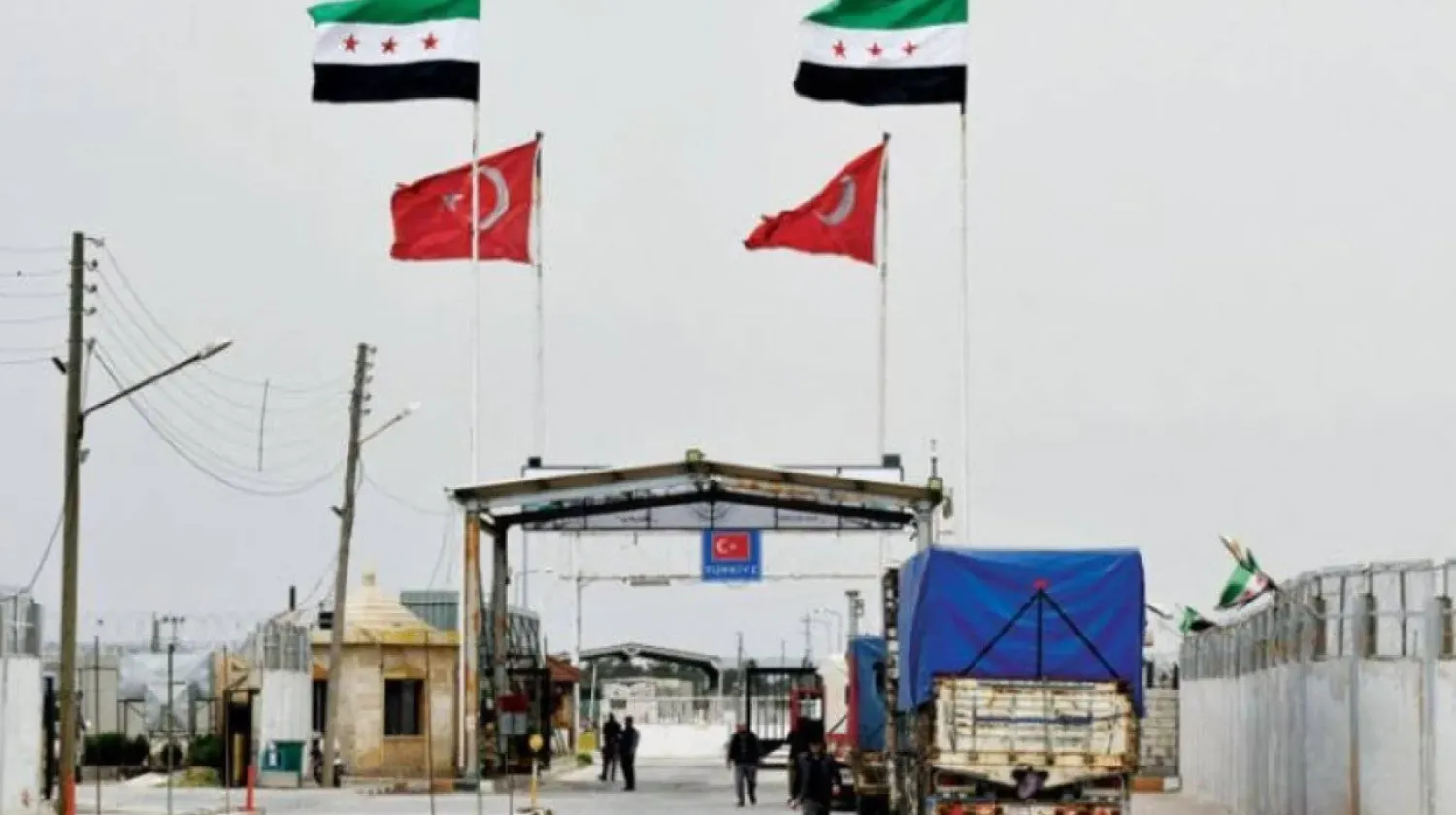Syrian government troops tightened their grip on Monday across a swathe of northern and eastern territory after it was abruptly abandoned by Kurdish forces in a dramatic shift that has consolidated President Ahmed al-Sharaa's rule.
A day after the Kurdish-led Syrian Democratic Forces (SDF), once the main US ally in Syria, agreed to quit large areas under a ceasefire, the Syrian army said "a number of" ISIS militants had escaped a prison that had been under SDF control in the eastern city of Shaddadi, accusing the SDF of releasing them.
The SDF said it had lost control of the prison following an attack by government fighters. The Syrian army denied attacking the jail and said its forces would work to secure the prison and re-arrest the escapees.
The SDF said Shaddadi prison had held thousands of militants. The army did not say how many ISIS detainees had fled.
The SDF withdrawals mark the biggest change in Syria's control map since fighters led by Sharaa toppled President Bashar al-Assad in 2024, tilting the power balance Sharaa's way after months of deadlock in talks with the SDF over government demands its forces merge fully with Damascus.
After days of fighting with government forces, the SDF agreed on Sunday to withdraw from both Raqqa and Deir al-Zor - two Arab-majority provinces they had controlled for years and the location of Syria's main oil fields.
GOVERNMENT TROOPS DEPLOY AT OILFIELD, IN RAQQA
Türkiye, which has repeatedly sent forces into northern Syria to curb Kurdish power since 2016, welcomed the deal signed by its ally Sharaa and SDF commander Mazloum Abdi. Turkish President Recep Tayyip Erdogan urged the swift implementation of the agreement that requires the full integration of Kurdish fighters into Syria's armed forces.
The SDF, spearheaded by the Kurdish YPG militia, had established control of a quarter or more of Syria during the 2011-2024 civil war, whilst fighting with the support of US troops against ISIS. The United States, which has since established close ties with Sharaa under President Donald Trump, has been closely involved in mediation between the sides.
The SDF media office said in a statement that the prison at Shaddadi - one of three under its control in the Hasakah region - had come under repeated attack by "Damascus factions", and that dozens of SDF fighters were killed or wounded defending it.
The statement added that the US-led coalition against ISIS had not intervened despite repeated appeals to a nearby coalition base. The US military's Central Command did not immediately respond to an emailed request for comment.
In its denial of the SDF account, the Syrian Ministry of Defense said army forces had bypassed Shaddadi, in line with deployment plans, and offered aid to SDF forces inside. The Syrian army announced it had established control over the city of Shaddadi and the prison.
The Syrian Defense Ministry also denied an SDF account of clashes between government and SDF forces near a jail in Raqqa, which the SDF said was holding ISIS inmates. It said the army had arrived "at the vicinity of al-Aqtan prison ... and began securing it and its surroundings despite the presence of SDF forces inside".
The SDF said nine of its fighters were killed and 20 wounded in clashes around al-Aqtan.
Hasakah province, which largely remains under SDF control, is home to the Kurdish-majority city of Qamishli, the main prisons holding ISIS detainees, and a camp holding thousands of IS-linked prisoners.
GOVERNMENT FORCES DEPLOY
Reuters journalists saw government forces deployed in the city of Raqqa that the SDF had captured from ISIS in 2017, and at oil and gas facilities in the eastern province of Deir Ezzor - both areas the Kurdish forces had held for years.
It follows the withdrawal of Kurdish forces from districts of Aleppo city they had controlled for years after fighting there earlier this month.
The 14-point deal published by Syria's presidency showed Abdi's signature alongside Sharaa's.
It stipulates that the prisons, along with all border crossings and oil and gas fields, would be handed to government control - steps the SDF had long resisted.
The timing of the handover of the prisons and camps was not announced.
Abdi, the SDF commander, confirmed on Sunday that the SDF had agreed to withdraw from Deir Ezzor and Raqqa provinces.
Abdi said he is set to meet Sharaa in Damascus on Monday and would share the details of the agreement with the public after his return to SDF-held territory, Kurdish media reported.
The deal says that all SDF forces will be merged into the defense and interior ministries as "individuals" and not as units, as the SDF had sought.
It commits the SDF to expel all non-Syrian figures affiliated to the Kurdistan Workers' Party (PKK), a Kurdish militant group which fought a decades-long insurgency in Türkiye.
Senior figures from Erdogan’s ruling AK Party said this removed a major obstacle to Türkiye’s peace process with PKK militants.









